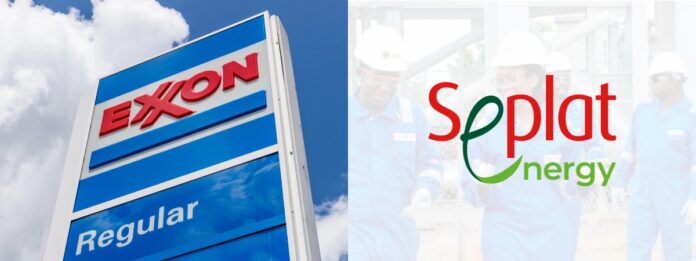. Affirms readiness to assist 36 States, FCT in acquiring CNG buses to reduce transportation cost
CHIGOZIE AMADI
The divestment of ExxonMobil’s 100% stake in Mobil Producing Nigeria Unlimited (MPNU) to Seplat Energy Plc. is set to receive ministerial approval in a matter of days, according to President Bola Tinubu.
The President disclosed this during his Independence Day national broadcast on October 1, 2024, confirming that the transaction has been successfully concluded by the Nigerian Upstream Petroleum Regulatory Commission (NUPRC) in line with the Petroleum Industry Act (PIA).
He therefore assured that the approval of the long awaited deal , alongside other qualified divestments in the oil and gas sector, is expected to create vibrancy and boost Nigeria’s oil and gas production, positively impacting the economy.
President Tinubu also emphasised that the country’s energy transition programme is on course.
He said, “We are expanding the adoption of the Presidential Initiative on Compressed Natural Gas for mass transit with private sector players. The Federal Government is ready to assist the thirty-six States and FCT in acquiring CNG buses for cheaper public transportation.”
In February 2022, Seplat announced plans to acquire ExxonMobil’s 40% stake in MPNU, but the Nigerian Upstream Petroleum Regulatory Company (NUPRC) declined approval on May 19, 2022, citing “overriding national interest.”
It would be recalled that the acquisition has since 2022, faced delays primarily due to legal and regulatory challenges.
One major hurdle was a lawsuit filed by the Nigerian National Petroleum Company (NNPC) on July 5, 2022. The lawsuit, which claimed NNPC had the first right of refusal on the sale, effectively blocked the transaction and created significant legal barriers.
A breakthrough came in June 2024 when NNPC withdrew its legal challenge.
However, this did not immediately clear all the regulatory obstacles, because the transaction still required formal consent from the NUPRC and the Nigerian President, which had yet to be secured as of September 2024.
The approval process has seen reversals in the past. Former President Muhammadu Buhari initially supported the deal but later retracted his approval following objections from regulatory bodies, who cited “overriding national interest” as the basis for halting the transaction.
In response to the prolonged delays, President Tinubu directed the Ministry of State for Petroleum Resources and the NNPC to expedite the resolution of outstanding issues, highlighting the severe financial losses incurred by the country due to deferred production.
It was reported that delays in production from these assets have led to estimated losses of $34 billion over the past two and a half years.
The delay has taken a heavy toll on Nigeria’s oil production capacity, as Heineken Lokpobiri , Minister of State for Petroleum Resources (Oil), confirmed that Nigeria lost $34 billion in the last two and a half years due to the fall in production from the assets being divested by ExxonMobil to Seplat Energy.
He disclosed that the assets have declined from 600,000 barrels per day (bpd) to current 120,000bpd, leaving a shortfall of 480,000bpd, which he said amounted to $34 billion loss at a conservative $80 per barrels, in the last two and a half years.
Gbenga Komolafe, Chief Executive of the Nigerian Upstream Petroleum Regulatory Commission, NUPRC, at the NOG Energy Week in Abuja in July,2024, confirmed that the government has received expression of interest for the ExxonMobil-SEPLAT deal, on a commitment to apply for ministerial consent. He emphasised that NUPRC is yet to receive the approval.
Energy analyst and stakeholders are optimistic that the completion of the ExxonMobil-Seplat transaction will restore investor confidence and unlock the potential of Nigeria’s oil and gas sector.

























